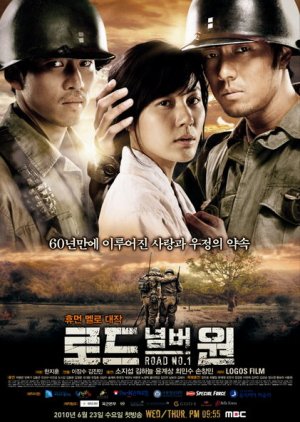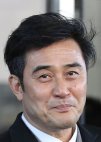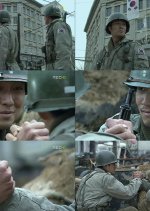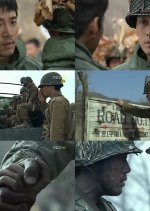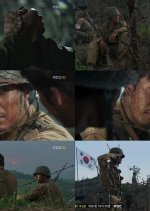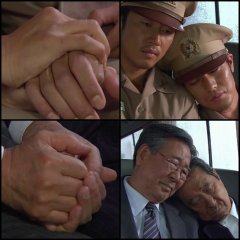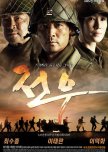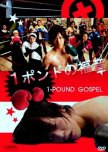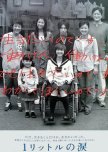 Kim Ha Neul to Work With Jung Ji Hoon (Rain) in the K-drama "The Rich"
Kim Ha Neul to Work With Jung Ji Hoon (Rain) in the K-drama "The Rich" Based on the events occurring around "Route 1", which lies between Seoul and Pyongyang. The story about Officer Lee Jang Woo who finds himself in a war that he is not prepared for in order to protect Soo Yeon, the woman he has known and loved since youth. However, he is able to put it past him and he displays extraordinary survival skills, friendship, cooperation and ideology under brutal war conditions. Soo Yeon awaits Jang Woo's return, but eventually gets engaged to Tae Ho. When Jang Woo returns alive, however, Tae Ho discovers Jang Woo and Soo Yeon's unbreakable bond and feels betrayed. Edit Translation
- English
- 中文(简体)
- magyar / magyar nyelv
- dansk
- Native Title: 로드 넘버원
- Also Known As: Road No. 1 , Road Number 1 , Rodeu Neombeo Won
- Screenwriter: Han Ji Hoon
- Director: Lee Jang Soo, Kim Jin Min
- Genres: Action, Romance, Drama, War
Cast & Credits
- So Ji Sub Main Role
- Yoon Kye Sang Main Role
- Kim Ha Neul Main Role
- Choi Min Soo Main Role
- Kim Jung WoonKim Byeong GuSupport Role
- Han Ye RiJo In SukSupport Role
Reviews

I was sorry to find out that this drama has not had high ratings in Korea and has not been viewed by many viewers outside Korea either. Although I can understand the basic reason of not wanting to watch people suffering I can say that it is a real pity not to appreciate all the effort that obviously went into the production, filming and acting of this drama. I think this is the best acting I have seen of So Ji Sub so far (and I have seen most of his well-known dramas) and especially in the last episodes he gave a performance that would have been higly worth an Oscar award if he had been in the US. But I also have to mention the other two main actors and in particular Yoon Kye Sang who played an incredible character who was strong and very generous.
So to summarize this drama focuses mostly on what friendship, comradeship and patriotism are all about but it also describes a very intense love story. I highly recommend the viewers to have a strong stomach and go through all the hardships that these poor soldiers went through and in the end...you will feel higly rewarded like I did!
Was this review helpful to you?

This review may contain spoilers
Romance & Bromance at its best in (still warlike) post World War II years on once Joseon´s soil
"Road No. 1" is an intriguing KDrama that takes a close look at the (still warlike) post-war years in Korea after 1945. On impulse we might think of the Korean War of 1950-53, but for the Korean people the struggle between North and South began much earlier (see below if you like).There are definitely plenty of tragic fates and stories to tell from that time. "Road No. 1" is one of them, splendidly captured within 20 episodes full of human struggle for life and love. Here you will find romance and bromance at its best. Emotively staged against a backdrop of uniforms, guns, grenades, explosions, barbed wire, the 38th parallel and Road No. 1.
------------------------------------------------------------------
Side Note: ---- HISTORIC BACKGROUND ----
The 'No. 1' is the road that connects Seoul and Pyongyang - after the end of World War II in 1945, these were the two largest cities in Korea, having been annexed by Japan since 1910 as the Chōsen province. After the surrender of Japan, the province of Chōsen was (like Japan itself) occupied by the Allies. The Soviet Union and the USA, as trustee administrators, had divided the country along the 38th parallel into two occupation zones. In fact, the Korean people weren't too keen on (again) not being given state sovereignty.
With the departure of the Japanese, the struggle for the future of the country began - a struggle between different visions and perspectives. The allies favored the political positions they liked - e.g. Joseph Stalin and Mao Zedong with Kim Il-sung a communist state in which only one politically active party should exist; the USA a Western-style constitution for the South with a Christian-capitalist orientation. However, there actually was also a nationalist, anti-foreign grouping within the country that (by tradition) particularly opposed the American occupation and its Western values. They engaged in a guerrilla war that began as early as 1946. That is, where "Road No. 1" has its roots and starts off. And that's a good thing, because this aspect is sometimes lost in the historical representation of the western hemisphere...
This resistance struggle´s position was much closer to communist ideas than to the western value system, which still seemed rather foreign up to that point. Just because the former colonial ruler Japan was one of the losers of war, the former Joseon doesn't have to be happy to make a 100° about-face towards Western democracy... What the country or its people wanted was actually not seriously considered. The promised election did not come about. It simply fell underneath the wheels of the Cold War. For the Soviet Union and the USA, Korean policy was based on post-war events and global political muscle flexing. However, for the Korean people, who had never been never tired of resisting oppression under colonial rule, things just kind of went on. From the rain in the eaves...
--- People's Republic of Korea - a non-starter ---
In fact, it completely escaped my historical knowledge that BEFORE the division into a communist North Korea (Democratic People's Republic of Korea) dominated by the Soviet Union and China plus a South Korea occupied by the USA (Republic of Korea), there had also been a KOREAN vision for the future of the peninsula. After Japan's capitulation, the 'People's Republic of Korea' (NOT EQUAL to the Democratic People's Republic of Korea alias North Korea) was proclaimed as a provisional government on September 12, 1945 for BOTH zones of occupation. Initially, the basis of the new constitution and government was supposed to be created from a network of people's committees. The program was radically social. The aim was to establish Korea's complete independence and a democratically governed public life for a free people.
In the north, the People's Republic was taken 'seriously' by the communist occupiers (effortlessly, so to speak, due to the similar attitude). In the south, however, the military controlled political events were based on a rigorous anti-communist attitude. Of course, the USA did not like this communist-affine new political perspectives towards the peninsula at all. In 'their' southern provinces, they even went so far as to ban the ´People's Republic´ (purely because of its communist ideas). This fueled resentment... and there it was again: resistance.
--- National Uprising ---
In 1946, the so-called Autumn Harvest Uprising marked the beginning of public, sometimes massive, resistance, which took on further forms in 1947 and finally culminated in a national uprising in 1948. The USA had to react quickly and so they sponsored the lesser evil: the elections for the first 'Republic of Korea' in August 1948: the autocratic Rhee Syng-man. Although he was not in principle friendly to the USA, nor was he an enthusiastic democrat or even an advocate of human rights, he was opportunistic enough to also cooperate in the interests of the USA. He was also anti-Japanese and anti-communist. South Korea was given a Western-style constitution, and from then on it had to be guided by Christian and capitalist values. Of course, after the South voted, the North had to follow suit (with the formation of the DPRK).
The Korean people were thus separated - politically, geographically, economically and socially - and had been incited against each other by propaganda and degraded to the pawn of global political muscle flexing. Industry, resources and energy supply were concentrated in the north, while two-thirds of the 30 million Koreans were living in the south. And they initially fought against the paternalism of the American military. Between 1948 and 1950, guerrilla fights against the South Korean Republic's military and police cost the lives of around 7,500 official security forces and around 34,000 civilians - even before the actual Korean War even began. The people strived for unity. But politically there was only an either-or (communism vs. ultra-nationalism).
--- Korean War with international participation ---
In 1950, Kim Il-sung made use of the situation in the south as well as of his military and material superiority. He wanted unite the country in his interests (and under his constitution). Rhee Syng-man had his military resist as best they could until international intervention by the UN led by the USA actually pushed back the North Korean army. However, in view of the new situation and the global dimension, China rushed to North Korea´s aid. There was fierce fighting, on land and at sea. At the end, the armistice, which is still in force today, includes the concession against the background of the Cold War that there will still be the Republic of Korea in the south and the Democratic People's Republic of Korea in the north.
After ca. 2 million civilians, around 1 million Korean and Chinese soldiers, as well as ca. 40,000 UN soldiers having given their lives to this war, everything remained just as it had been before. In sum: A divided country that had been cheated of its autonomous sovereignty. Patronized Koreans. A people with split identity. Separated families.
Was this review helpful to you?

